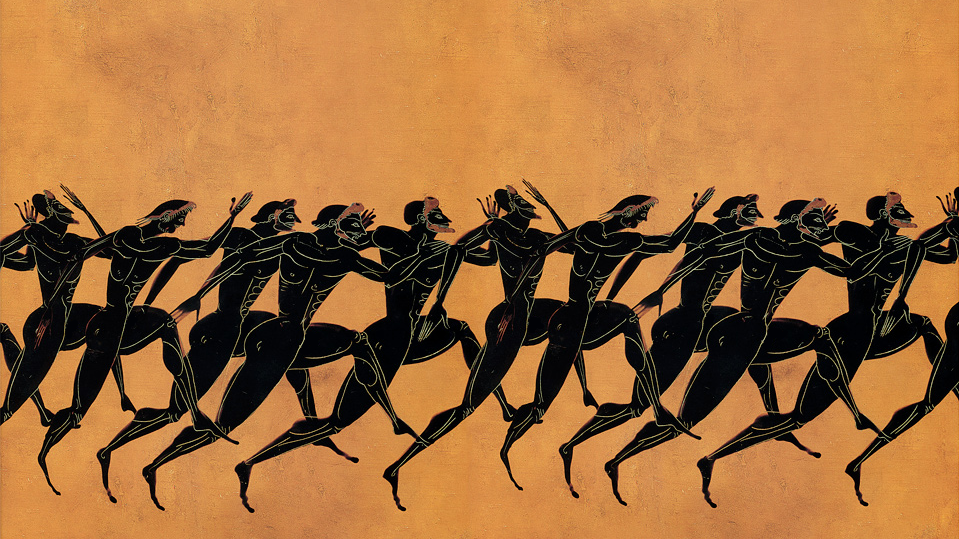There’s a trope about the master poker player who can tell what the other players are holding by looking into their eyes. There might be something to that, but the real-world pros rarely even try it. A pro knows to “bet into” another player and watch what he does. If he calls, he’s waiting for cards or “slow playing” a sure thing. If he re-raises, he’s bluffing or holding a good hand with low outs and trying to scare away the free riders before he gets out drawn.
The idea of predictable, mathematical poker is so widely accepted that a player is often described as having played a “perfect hand”—with no trace of consideration for any mind reading that might (or should) have taken place.
Still, every so often you’ll see a stare down at the World Series of Poker, one player trying desperately to decode another’s blinks, squints, and pupil dilations into some expression of intent. If it isn’t possible, it damn sure feels possible.
… Anyhow, books don’t have eyes, so we’re left with “betting into” our characters and watching what they do.
“Betting into” your character.
Most of the time, your character won’t do anything interesting. He’ll eat when he’s hungry, sleep when he’s tired, and make boring, predictable choices. This is necessary. Your character usually has somewhere to go, and he won’t get very far riding a pelican and wearing a bathtub for a hat.
But predictable doesn’t establish character, whether it’s predictable dish washing or predictable dragon slaying. Sometimes your character has to do something your reader wouldn’t.
Judge for yourself.
Read the following two plot developments. Which tells more about the character?
Pamela accepts a 15% pay cut to spend more time with her family.
Margaret accepts a 15% pay cut to spend more time watching Internet porn.
Here’s another:
James chooses to amputate his left leg to stop the spread of cancer.
Douglas chooses to amputate his left leg to compete in the Paralympic Games.
If I’m right, your mind is—right now—flooding with assumptions about Margaret and Douglas (the second choices): their motivations, their backgrounds, their hair cuts. Pamela and James are still each a blank slate.
It’s not that easy.
The alternate (#2) plots above are the kind that make you pick up a book, but they’re also the kind that make you put a book down. Character-defining choices must be questionable, but they can’t be “eye rolling.”
Choices have to make sense to the character, even when they’re unthinkable to the rest of us, so you have to build an environment where every choice is viable, even when that choice leads to shame, ruin, certain death, or staying home under the porch.
This means you have to make your beloved protagonist into a character who might not choose to do the “right” thing, and you have to spend a little time creating and “selling” viable boring choices in your book-universe wonderland.





